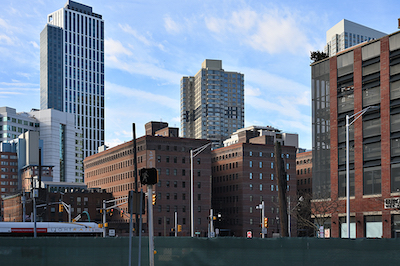City Living vs Country Living: Which One Suits You Best?
The debate between city living and country living has been a topic of conversation for years. There are those who love the hustle and bustle of the city, while others prefer the peace and tranquility of the countryside. With both lifestyles offering their unique advantages and disadvantages, the decision ultimately comes down to personal preferences and priorities. In this article, we will delve into the various aspects of city living and country living, comparing their differences and highlighting the factors to consider when choosing your ideal environment.
I. Lifestyle and Pace
- City Living: Fast-paced and Dynamic
City living is synonymous with a fast-paced and dynamic lifestyle. From the moment you step out of your door, you are surrounded by people, vehicles, and countless opportunities for socialization, entertainment, and personal growth. City dwellers often have access to a wide range of cultural, recreational, and educational experiences, making it easier to explore new interests and hobbies.
- Country Living: Slower and Relaxed
In contrast, country living offers a slower, more relaxed pace of life. With fewer people, less traffic, and more natural landscapes, country dwellers can enjoy a quieter, more laid-back existence. The countryside offers the opportunity to connect with nature, engage in outdoor activities, and foster a strong sense of community with neighbors.
II. Job Opportunities and Career Growth
- City Living: Diverse Employment Options
Cities tend to offer a wider range of job opportunities across various industries, making it easier for individuals to find work that aligns with their skills and interests. Additionally, cities often present more opportunities for career growth and advancement, with access to professional networking events, conferences, and workshops.
- Country Living: Limited but Focused Opportunities
While job opportunities in rural areas may be more limited, they tend to be more focused on specific industries, such as agriculture, forestry, and small-scale manufacturing. Country dwellers may find it easier to secure stable employment in these industries, but career growth and advancement may be more limited compared to city environments.
III. Housing and Cost of Living
- City Living: Higher Costs, Smaller Spaces
Living in a city often comes with higher housing costs, with smaller apartments or condos being the norm due to limited space. Additionally, the cost of living in a city is generally higher, with expenses such as transportation, groceries, and entertainment adding up quickly.
- Country Living: More Affordable, Spacious Homes
In contrast, country living typically offers more affordable housing options, with larger homes and more outdoor space. The overall cost of living in rural areas is generally lower, with reduced expenses for transportation, groceries, and other daily necessities.
IV. Education and Healthcare
- City Living: Access to Top-tier Institutions and Medical Facilities
Cities often boast top-tier educational institutions, with a wider range of schools, colleges, and universities to choose from. This can provide better opportunities for children and adults seeking quality education. Additionally, cities tend to have better access to healthcare facilities, with numerous hospitals and clinics providing specialized treatments.
- Country Living: Smaller Schools and Limited Healthcare Options
Country living often means fewer choices when it comes to education, with smaller schools and limited access to higher education institutions. However, smaller class sizes can lead to more personalized attention and a strong sense of community among students. Healthcare options in rural areas may be more limited, with fewer specialized medical facilities and longer travel times to reach them.
V. Social Life and Community
- City Living: Diverse and Plentiful Social Opportunities
City living provides ample opportunities for socialization and networking, with numerous bars, restaurants, clubs, and other social venues. Cities are also known for their diverse populations, allowing residents to meet and interact with people from various backgrounds and cultures. Festivals, concerts, and cultural events are commonplace in cities, offering a constant stream of entertainment options.
- Country Living: Close-knit Communities and Simpler Social Life
Country living often fosters a strong sense of community, with neighbors forming close-knit bonds and looking out for one another. Social life in rural areas tends to be simpler, with gatherings centered around community events, local sports, and outdoor activities. While there may be fewer entertainment options in the countryside, the emphasis on community can lead to more meaningful and lasting relationships.
VI. Environment and Outdoor Spaces
- City Living: Limited Green Spaces and Higher Pollution Levels
One downside of city living is the limited access to green spaces and higher levels of pollution. Parks and public gardens are often few and far between, and the constant noise from traffic and construction can be overwhelming. Air quality in cities tends to be poorer due to vehicle emissions and industrial activities, which can impact overall health.
- Country Living: Abundant Nature and Cleaner Air
In contrast, country living offers a wealth of natural beauty and outdoor spaces, with access to forests, fields, lakes, and rivers. Rural dwellers can enjoy a variety of outdoor activities such as hiking, fishing, and gardening, all while breathing cleaner air. The natural environment can have a positive impact on mental and physical health, promoting relaxation and reducing stress levels.
Conclusion
Both city living and country living offer unique benefits and challenges. Ultimately, the decision comes down to personal preferences and priorities. Those who value career growth, diversity, and a vibrant social scene may thrive in a city environment. On the other hand, individuals seeking a quieter, more relaxed lifestyle with close-knit communities and access to nature may find country living more suitable.
In conclusion, when choosing between city living and country living, it is essential to consider the factors that matter most to you, such as employment opportunities, housing costs, social life, and access to education and healthcare. By weighing the pros and cons of each lifestyle, you can make an informed decision that best aligns with your goals and desires for a fulfilling and happy life.










